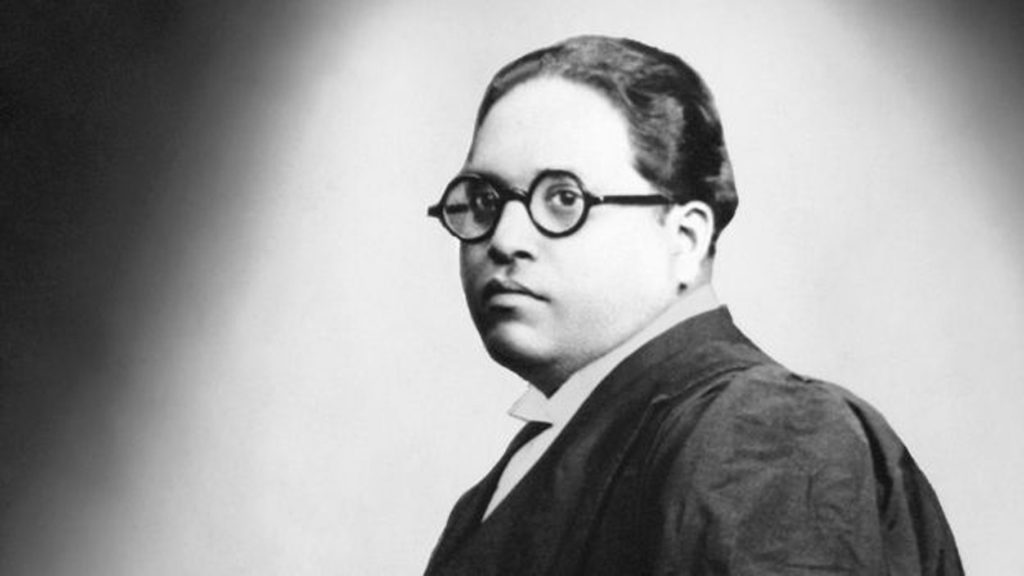
Why I Should Be Proud Of That Religion… – Dr Ambedkar
The following text is from Dr Babasaheb Ambedkar’s Writings and Speeches, Vol. 17 (1). – editor
“At the Ballard Pier, Dr. B. R. Ambedkar received a telegram from Gandhi asking him to see the latter in Yeravda Jail. Dr. Ambedkar wired back to Gandhi that he would see him on his return from Delhi. The next day Dr. Ambedkar received a wire from Dr. Ba Maw of Rangoon which said: “Burma anti-separatist leaders proceeding to Delhi next week to meet Indian leaders during the Assembly session. They are anxious to discuss Burma constitutional situation with you and other leaders. We, therefore, request you to meet the deputation in Delhi on 4th and 5th February. Kindly wire your Delhi address to enable us to get in touch with you there. Reply U Chit Hlaing, 80, Hermitage Rd., Rangoon,—U Chit Hlaing and Dr. Ba Maw.” Several congratulatory messages were received in Dr. Ambedkar’s office from all quarters of the country. One of them was from the Thiya Yuvajan Samaj of Ernakulam, congratulating their great leader gratefully on the bold fight he gave at the Round Table Conference for the rights and liberties of the Depressed Classes and the people of the Native States.
Immediately Dr. Ambedkar left Bombay for Delhi to attend the informal meeting of delegates to the Round Table Conference convened by the Viceroy. After his return from Delhi, he wired to Gandhi that he would be able to see him on the 4th February. Gandhi informed Dr. Ambedkar by wire on February 3 : “Wire just received tomorrow 12-30 will suit—Gandhi.” It is clear that Dr. Ambedkar could not meet the Burma delegation in Delhi as he wanted to see Gandhi in Yeravda Jail on February 4, 1933.
Accompanied by S. N. Shivtarkar, Dolas, Upasham, Kowly, Ghorpade and Keshavrao Jedhe, Dr. Ambedkar entered Yeravda Jail at 12-30, on February 4. In a happy mood, Gandhi got up and welcomed the visitors. After a while, the conversation turned to the question of temple entry. Gandhi requested Dr. Ambedkar to lend his support to Dr. Subbarayan’s Bill and that of Ranga Iyer. Dr. Ambedkar flatly refused to have anything to do with Subbarayan’s Bill, since the Bill did not condemn Untouchablility as a sin. It only said that if a referendum favoured the temple entry, temples should be thrown open to the Depressed Classes, but said nothing of their right to worship the deity in the temples.
He told Gandhi that the Depressed Classes did not want to be Shudras in the order of the caste system and added that he honestly could not call himself a Hindu. Why, he asked, he should be proud of that religion which condemned him to a de-graded position. If that system was to continue, he had no use of the benefits of the temple entry.
Gandhi said that according to him the caste system was not a bad system. He continued: “Let the touchable Hindus have an opportunity to expiate their sins and purify Hinduism. Do not be indifferent to this question. Sanatanists and Government would take advantage of this. If this reformation takes place, the Untouchables would rise in society.”
Dr. Ambedkar differed from Gandhi. He was convinced that if the Untouchables made progress in the economic, educational and political fields, temple entry would follow automatically.”



Your site is very good ….I found all books he re .
Thanks for this .
Hope i will find more books ….